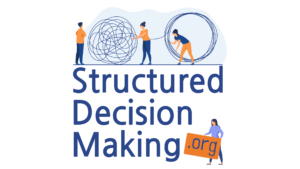Tiggers for a Decision Review
Making important decisions is an integral part of any business or organization. However, with the fast-paced and ever-changing operating environments, it’s essential to periodically review these decisions. Regular reassessment helps to ensure that decisions remain relevant, effective, and aligned with the current needs and circumstances of the organization.
Here are some common triggers that prompt a decision review:
- Changes in Circumstances: The availability of new information or data can sometimes lead to significant changes in circumstances, making the original decision irrelevant or inefficient. Regular monitoring of such changes can prompt a decision review.
- Reassessment of Goals and Objectives: Organizations often set goals and objectives that may change over time. Reassessment of these goals can lead to a review of the previous decisions that were made to achieve them.
- Performance Monitoring and Measurement: Regular monitoring of the performance of a decision can provide valuable insights into its effectiveness. If the decision is not delivering the desired results, a review may be necessary to inform adjustments.
- Feedback from Stakeholders: Feedback from stakeholders can provide valuable insights into the impact of a decision on various parties. Regular feedback can help in identifying areas of improvement and prompt a decision review.
- Legal or Regulatory Changes: Changes in laws or regulations can significantly impact the validity of a decision. Regular monitoring of legal and regulatory changes can prompt a review to ensure compliance.
- Organizational Changes: Changes within an organization, such as restructuring or new leadership, can lead to a reassessment of previous decisions.
- Unforeseen Consequences or Unintended Outcomes: Decisions often have unintended consequences that may not have been anticipated at the time they were made. Regular monitoring of these consequences can prompt a review to make necessary adjustments.
- The Expiration of a Set Timeframe: Some decisions may have a set timeframe for implementation. The expiration of this timeframe can prompt a review to assess the effectiveness of the decision and determine if further action is necessary.

